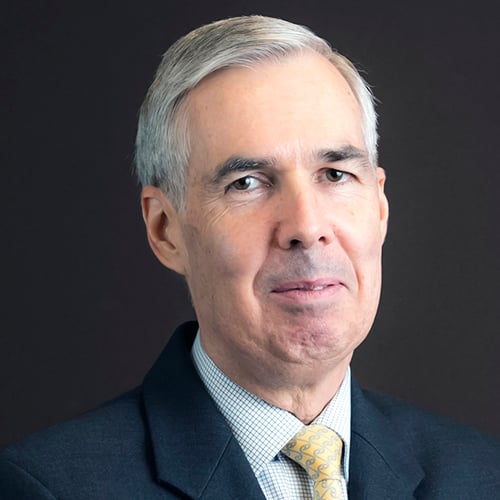The Covid-19 crisis has justified the asset servicing industry’s targeted investment in technology and the digitization of businesses, notes Mathew Kathayanat, BNY Mellon’s director and head of product and strategy, asset servicing, Asia-Pacific, who spoke with The Asset about how he is coping with the crisis.
Like many around the world, Singapore-based Kathayanat is working from home as the city state adheres to a tight social distancing policy in its battle against the pandemic.
Kathayanat is responsible for managing the development of new asset servicing products and enhancements in support of client needs across the Asia-Pacific region for his firm. So how has he managed to maintain his working structure discipline?
“I've been working from home for the last seven weeks, and it's as though nothing has changed in my life. My work is just continuing, as though I'm sitting in the office,” he says. “I have access to all the tools that I need.
"I have all the infrastructure I need. It's just the difference of sitting in my office, physically working with colleagues and other people. I'm just sitting here and talking to people virtually.”
He stresses that his business is highly digitalized, offering the example of sharing application programme interfaces (APIs) with clients, giving them seamless access to data. The APIs have helped clients improve efficiency and cut costs, helping the bottom line.
But with the enormous market volatility of recent weeks has his system been robust and stood up to everything?
“We operate scalable systems. Just to give you a data nugget, we manage about US$35 trillion worth of assets under custody and on a daily basis process hundreds of thousands of transactions across the globe,” he notes. “Obviously these are very worrying times, but our systems handle these kinds of transactions, so it doesn't really differ from any other day.”
According to Kathayanat, functioning remotely has worked well and all parts of his business are open and operating at normal levels with a large proportion of the people working from home across the globe, without any disruption to clients.
With jurisdictions across the region, such as those in China, South Korea, Australia and Hong Kong, eyeing a return to a post-virus life, has the company learned anything from the crisis?
Because Asia was first to feel the Covid-19 force, Kathayanat believes the offices in the region contributed to helping BNY Mellon’s global offices prepare as the virus proliferated.
“We have been dealing here for a few months with this crisis as we went into lockdown first, and we've seen different scenarios play out in different countries. Asian countries have shared the experience and best practices with people in other regions,” he points out.
“Within BNY Mellon, we have global co-ordination centres and resiliency offices, and our operations and technology teams were already managing the situation,” he adds.
That same pattern is likely to see Asia-Pacific business units return to the new normal before their global counterparts, so will a playbook to come back to normalcy come from Asia too?
Kathayanat says he can’t speak on behalf of BNY Mellon, but feels that for any institution the decision to restart will depend on a lot of factors, such as how governments and financial regulators in particular countries act and how financial institutions and their employees feel.
“For example, the Singapore government might say that the lockdown will be lifted in June, but if the financial regulator says, financial services employees are not essential, you can work from home, then we'll have to take that into consideration,” he says.
Even before the Covid-19 pandemic developed into a fatal virus that pitched global economies into turmoil, Kathayanat says that environmental, social and governance (ESG) awareness and integration was high.
In its “2020 and Beyond” report published earlier this year, BNY Mellon outlines a number of key trends that are shaping the future of the global investment industry.
As sustainable investment becomes mainstream around the world, the seismic shift of ESG integration was among the five core themes highlighted in the report.
“There's a lot being written about ESG and perhaps the way to frame it is, this [Covid-19 pandemic] could be ESG’s epiphany. It could be ESG’s road to Damascus kind of moment, where ESG really goes mainstream because of what is happening around us,” Kathayanat notes.
“I think it will become more and more entrenched with our asset manager and asset owner clients as they come out of this crisis.”









